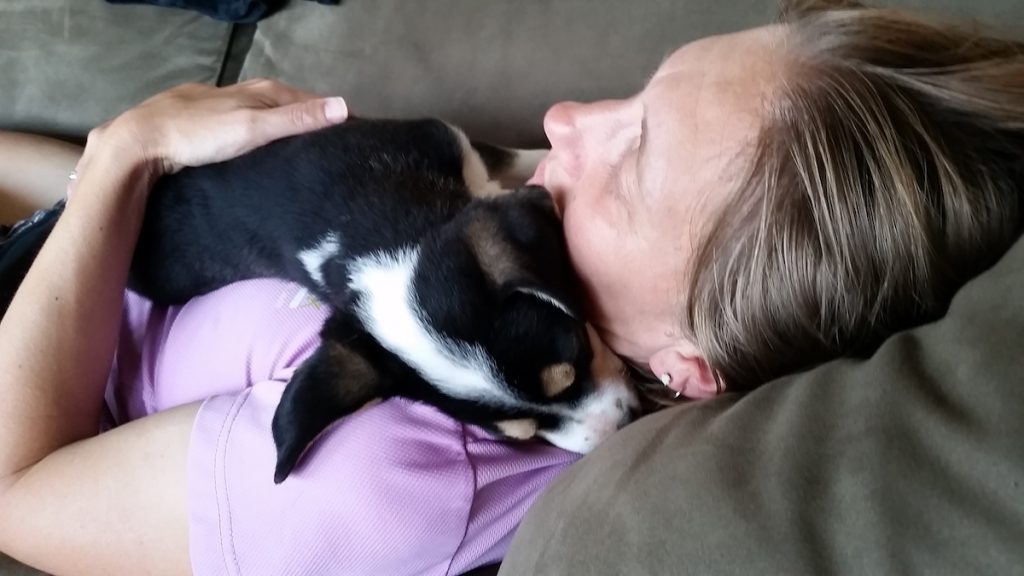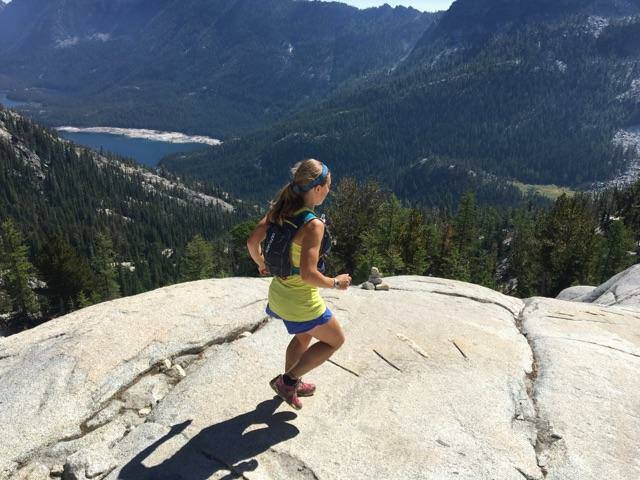There are a multitude of reasons why it can be tough to get out the door. What is helpful to know is that everyone* feels this way from time to time. Training towards any goal involves a series of wonderful and awful runs with most of them feeling somewhere in the middle. Just like eating chocolate (insert your favourite food here) everyday sounds great in theory and probably even is in the beginning, truly being required to eat chocolate every day wouldn’t be that enjoyable. Most of the time it would probably taste good and some days it would even be great, but there would also be days you just wouldn’t want to eat chocolate again. Running – anything, really! – is the same way. Since there will be days it is difficult to get yourself out there, here are some tips for getting your training in on those days you just don’t feel like it:
Use tough weather conditions to make yourself tough.
When it’s cold, dark, raining, and/or windy out, it can be difficult to get excited about going outside to train. I urge my athletes to get out there anyway and not because I’m mean.
Reason #1: On race day, weather is a major factor that is out of our control. If you’ve gotten use to running in adverse conditions, you are far more likely to run strong on race day than if you took those days off or stayed inside – both because mentally the conditions won’t bother you as much and physically you were more consistent with your training program.

Reason #2: Think about how tough you are getting out there, doing your training when most others would be taking the day off. There’s nothing more motivating than feeling hard core, knowing you’re out there training when your competition probably isn’t. In the name of interesting, non-scientific research, note the difference in the number of people at popular running spot Green Lake, in Seattle – or your local running hot spot – on good vs. bad weather days.
Long day? You’ll feel better if you go for your run.
Want to curl up on the couch with a good book, watch the latest episode of The Good Place, or take a nap? Anything but run because you’re sooooo tired, right? Wrong! Not only do you need to get your training in from a physiological (and goal-oriented) standpoint, more often than not you’ll feel much better afterwards. Try it and see for yourself!
On a related note, if you find your evenings getting away from you, scheduling a block of time for your training on your daily calendar can make it easier. Knowing that’s your time can be a great motivator and you’ll feel better for the rest of the evening, too.
Break training into smaller chunks.
Fatigue from a heavy training load and/or high stress day can make it difficult to get motivated to head out the door. I always tell my athletes to go for 10-15 minutes with no expectation of more than that. If they feel bad after that amount of time, turn around and head home – no guilt. Usually by then they are warmed up and feeling fine, if not good. Typically, they end up doing the entire run, forgetting they had considered not doing it. For the times that doesn’t happen, they’ve gotten in a short run which means some small aerobic gains while still giving their body the rest it clearly needs.

Schedule your runs for earlier in the day.
Oftentimes people feel tired after a long day of meetings, carting kids around to their activities, or finally doing those errands that need to get done (when’s the last time you mopped your floors and how scared are you to see what color the water turns in the mop bucket?). It’s understandable if you feel unmotivated at the end of the day. To avoid this, do your run first thing in the morning. While you may need to use another trick to get yourself up early enough (there are a couple good tricks in one of the articles linked below), it’ll jump start your day by waking you up, getting your body warmed up and primed for the day and giving you a mental boost as well. It also means your training isn’t looming over you throughout the day which can also save you some energy.
A couple of interesting articles with a few more helpful tips:
Four Reasons Exercise Feels Good
What Happens to Our Brains When We Exercise and How it Makes Us Happier
*Contrary to popular belief, professional athletes are not immune to feeling like staying inside…and their livelihoods depend on them getting out the door! You’re in good company.








